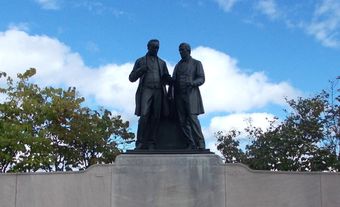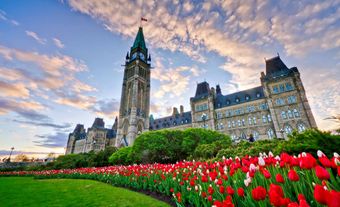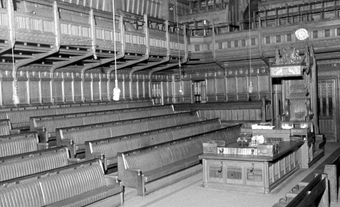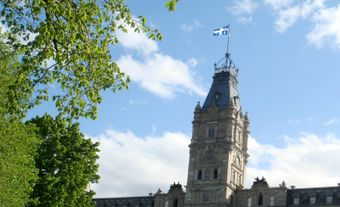Each day the House of Commons is in session, 45 minutes is allocated for members of Parliament to ask questions of government ministers and of the prime minister. Question Period — formally called Oral Questions — is an important method of ensuring that the government answers to the people, represented by the opposition parties, and is held accountable for its actions.
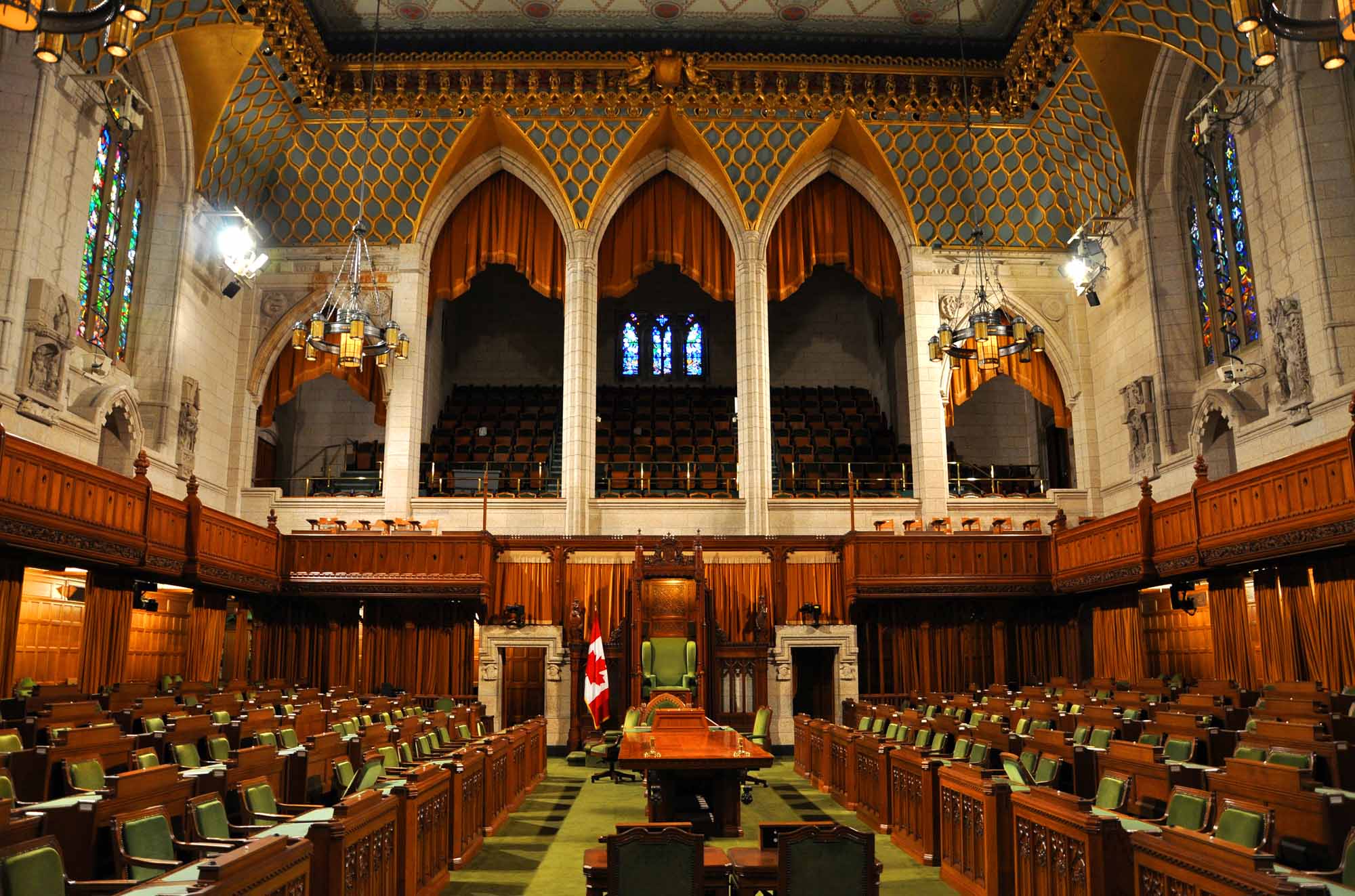
Description
Canada’s parliamentary system provides various means for holding the government to account. One example is Oral Questions, more commonly known as Question Period.
The House of Commons Standing Orders allocate 45 minutes of each day the House is in session for Question Period. It usually occurs at 11:15 a.m. or 2:15 p.m. The Opposition leader or a leading questioner from their party is allowed to pose three questions, followed by another two questions from the Opposition leader or another Official Opposition MP, followed by questions from leading questioners of other opposition parties, according to an order for the day provided to the Speaker. Government MPs may also ask questions, but most are posed by the opposition. Questions may be provided in writing prior to Question Period but most are asked orally with no advance notice as to the question or topic.
The public may watch Question Period from the visitor’s gallery in the House. The proceedings are also televised, though not to be confused with CTV’s long-running weekly political program of the same name.

Rules
Questions must be posed to the Speaker of the House and must state to whom the question is directed. The Speaker typically allows a follow-up question. Most questions seek information regarding a current issue or pending legislation. Rules restrict the type of questions that may be asked. For example, MPs may not seek legal opinions, make accusations in preambles to questions, or seek confidential information.
The prime minister or a Cabinet minister may refer the question to another minister. Responses are directed to the Speaker. Responses may include answering the question, deferring a response, explaining why a response is not possible at that time, or saying nothing.
While Question Period rules are clear, they are often broken. Opposition parties carefully plan their questions to win media attention. Government members also plan their responses to topics they suspect will be raised. It is common for questions and responses to be interrupted by heckling from both sides of the House, with the Speaker often forced to demand order.
Question Period often appears to be political theatre; the questions are not really questions and the answers are not really answers. It nonetheless remains an important method of ensuring that the government answers to the people and is held accountable for its actions.
See also Parliamentary Procedure; Speech from the Throne; Allotment of Time; Symbols of Parliamentary Authority; Backbencher.

 Share on Facebook
Share on Facebook Share on X
Share on X Share by Email
Share by Email Share on Google Classroom
Share on Google Classroom
